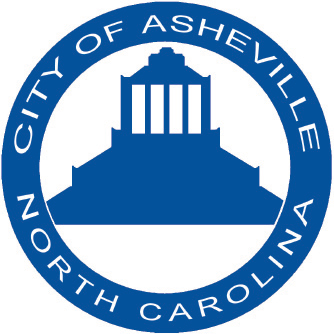Over a year and a half has passed since Asheville City Council tightened its rules on short-term rentals, and STR advocates have been pushing the city for compromises ever since. After a public hearing on Tuesday, Aug. 27, Council will consider whether to update the definition of a kitchen in the city’s homestay ordinance, which could increase the number of eligible STRs within city limits.
The kitchen matter has long been a priority for the Homestay Network, a local group of about 600 legally permitted homestay hosts, which claims that the city’s definition is unnecessarily restrictive and unclear to residents who rent rooms in their home short-term. The current rules do not allow homestays to offer rooms that contain either a stove, a full-sized refrigerator or a kitchen sink, according to a staff report available before the meeting.
The new definition, proposed by the Homestay Network, would still forbid stoves in homestay dwellings but allow sinks and refrigerators. Other changes bundled with the kitchen rule would stipulate homestay operators to be at least 18 years old and remove the requirement for operators to provide proof of residency unless “deemed necessary” by city staff. The new regulations do not affect whole-home STRs, which remain banned (with some exceptions) within Asheville city limits. On Aug. 7, the city’s Planning and Zoning Commission voted unanimously in favor of the changes.
While the regulatory updates aim to provide more clarity to city staff and homestay permit holders, the staff report notes that if Council adopts the changes, accessory dwelling units and other spaces could become eligible for STR use through the removal of a stove. That flexibility could increase the number of STRs and make enforcement of the regulations more challenging.
In transit news
Council’s consent agenda contains five items relating to Asheville’s transit system. The city plans to renegotiate its contract with RATP Dev, the company that manages operations and maintenance for Asheville Redefines Transit, to hire additional staff and increase the number of bus service hours by 20,400 starting in January. According to a staff report available before the meeting, the necessary $1 million in additional funding has already been approved in the city’s 2019-20 annual budget and will support partial implementation of year one of the 2018 Transit Master Plan.
Asheville will also expand and update ART’s 23-bus fleet by purchasing three 30-foot diesel electric hybrid buses and four diesel buses for nearly $3.8 million. The city plans to apply $359,706 received from insurance after a city bus was destroyed by an engine fire toward the purchase of the new buses.
While Asheville does not currently plan to purchase additional zero-emission battery-electric buses — despite having committed to run a completely zero-emission bus fleet by 2030 — the city expects to receive $200,000 from Duke Energy as reimbursement for five electric bus charging stations. The agreement is part of a state-run program that requires Duke to spend $3,000,000 to implement and support efforts to reduce carbon emissions throughout the state. The city plans to use $23,620 of that reimbursement to purchase automatic passenger counters for the electric buses. Also on the consent agenda is a $100,000 budget amendment to cover the electric bus battery annual lease agreement.
Consent agenda
Including the transit matters, a total of 13 items will appear on Council’s consent agenda for the meeting, which will be approved as a package unless singled out for separate discussion. Non-transit highlights include:
- A request to name Tennis Court 1 at Aston Park Tennis Center in memory of Lewis Isaac. Issac, a former Human Resources and Parks & Recreation employee for the city and a Recreation Advisory Board member, was a longtime supporter of the Aston Park Tennis Center.
- A budget amendment in the amount of $33,500 for two Government Alliance on Race and Equity (GARE)/Race Forward grants for programming aimed at equity and inclusion. The grants will be used in partnership with Artists Design EVOLution and Asheville Healing to address structural racism.
Asheville City Council meets at 5 p.m. in Council chambers on the second floor of City Hall at 70 Court Plaza, Asheville. The full meeting agenda and supporting documents can be found here.



Before you comment
The comments section is here to provide a platform for civil dialogue on the issues we face together as a local community. Xpress is committed to offering this platform for all voices, but when the tone of the discussion gets nasty or strays off topic, we believe many people choose not to participate. Xpress editors are determined to moderate comments to ensure a constructive interchange is maintained. All comments judged not to be in keeping with the spirit of civil discourse will be removed and repeat violators will be banned. See here for our terms of service. Thank you for being part of this effort to promote respectful discussion.